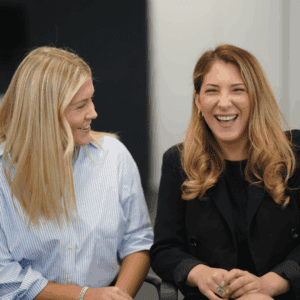‘If you can measure it, you can manage it’ is the old saying. Nowhere is this more true – and much needed – than for your social impact.
Many businesses do great things in the community, but often initiatives are random, sporadic and fragmented. These pages have long proposed a more strategic, focused, as well as local approach to an organisation’s charitable activities, aligned with the most pressing social needs in the community.
Social value is still a relatively unknown concept, and even to those who have heard about it, it is somewhat abstract and difficult to comprehend. It relates to non-financial indicators, and attempts to evaluate the results of socially beneficial actions, be they philanthropic, charitable or the result of an ‘impact business model’ – where a business produces a social impact through its day-to-day operations.
Theory of Change
Business can learn from the charity sector and the Theory of Change (ToC) concept, which in simple terms is based on an Inputs-Outputs-Outcomes-Impacts model.
The ToC is an approach that first identifies the desired long-term goals (Impacts) and then works back from these to identify all the conditions (Outcomes) that must be in place for the goals to occur. These are all mapped out in an Outcomes Framework.
This provides the basis for identifying what type of activity or intervention (Inputs) will lead to the intermediate results (Outputs) that will drive the desired Outcomes for achieving the long-term goal.
Example – homelessness
A bank makes a lot of money selling mortgages, but when there is an economic downturn, it may have to foreclose on loans and this may leave people homeless. If the bank donated £100,000 to retrain 100 homeless people, of whom 90 finished the course, resulting in five fewer suicides, 20 fewer court cases, 30 fewer hospitalisations and 45 people coming off benefits, we can measure each step – and monetise the social impact. In summary:
- Input: £100,000
- Output: 90 people finish the course
- Outcomes: fewer suicides, court cases etc which may equate to millions of pounds of social value, as savings to the public purse
- Impact: secondary wellbeing benefits for the families, their children and the community (the hardest
to measure)
University’s ISII at the cutting edge
The Institute for Social Innovation and Impact (ISII) at the University of Northampton evaluates and measures social impact around the world.
ISII defines social impact as ‘the economic, social and environmental benefits delivered by an organisation to society’. Though its work, ISII supports social innovators to develop their ideas and collaborates on multi-disciplinary research projects through partnerships in several areas, including:
- Social Innovation and Impact
- Social Investment
- Social Entrepreneurship
- Public Service Reform
Social Impact Matrix©
ISII evaluates social impact through the use of their bespoke ‘Social Impact Matrix©’. This methodology was established in 2014 in compliance with the EU’s rigorous GECES framework. It can measure – and monetise – social impacts against individual UNSDG goals.
ISII is led by Professor Richard Hazenberg, its Director. Richard and his team have worked with a range of external partners, including: Big Lottery Fund, Ministry of Defence, HM Treasury, Big Issue Invest, British Council and the European Commission.
Following its recent project for Northants-based Blue Skies and Waitrose in Ghana, ISII’s methodology has been successfully applied to the business world, in a way that enables charities and business to work more closely and more strategically together.
Imagine being able to measure your impact, not only in terms of the number of beneficiaries but also the financial implications, and thus know the social return on your charitable donations and activities. This methodology also supports public sector contract tendering, as under the 2012 Social Value Act all bids must demonstrate a social value component.
Ground-breaking and world-changing. Made in Northamptonshire, right here on your doorstep!
Save the Date
Sustainability Summit – May 15-16, 2023
Bringing together business, charity, local government and other stakeholders to address sustainability challenges through collaborative research and knowledge exchange.
Join us at the Waterside campus to hear over 40 expert speakers discuss the Climate Emergency, the Sustainable Consumer and the Northampton Sustainability Accord and much more.
For further information contact the Institute’s team at ISII@northampton.ac.uk
–
Contact Adrian Pryce on 07720 297402 or adrian.pryce@northampton.ac.uk













